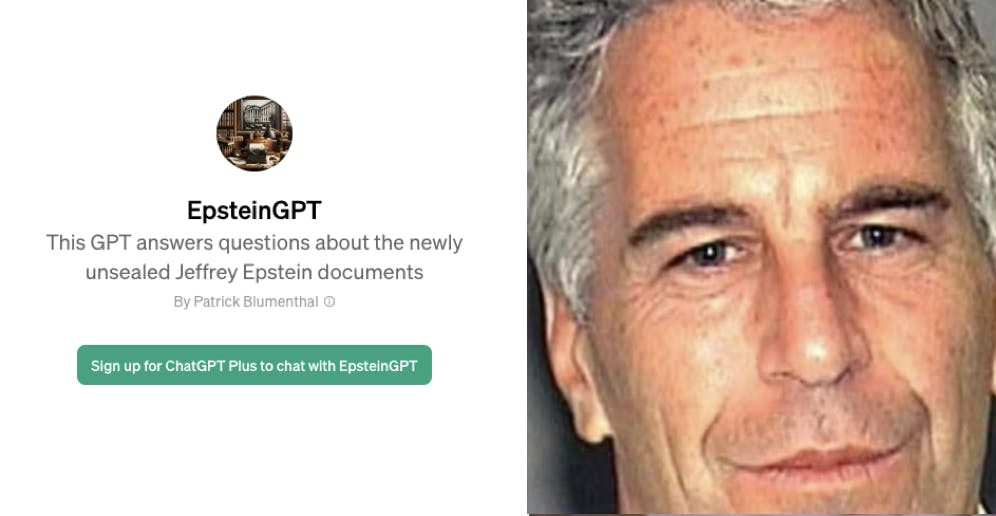
Yesterday a New York court started uploading newly unredacted documents related to long-running civil litigation between convicted child sex trafficker Ghislaine Maxwell and Epstein survivor Virginia Giuffre, who sued Maxwell for defamation in 2015 for calling her a liar.
Those documents, which total 943 pages related to the case so far, are quickly being pored over, sliced, diced, and dissected for details about the life and crimes of the pedophile financier Jeffrey Epstein, who Maxwell was convicted of procuring underage girls for in 2021.
With such a crush of documents hitting the docket—and more reported to be coming down the pipe—the internet exploded with speculation about the contents of the newly released files. While there was none of the fabled “client list” (there is no client list in the sense that many people imagine, and certainly not as an exhibit in any currently active cases) included among the documents, there were plenty of tantalizing and disturbing details in the files.
To make sense of the newly released files, given that some of them have been previously released with redactions, gumshoes need to go sift through a blizzard of cross-referencing, comparing the new documents to old, more redacted documents, as well as having a working knowledge of a complex defamation case at the root of a bizarre, conspiratorial affair, to have any chance of making sense of what’s going on. And even then it can still be challenging in a case spanning over 1,000 docket entries.
One poster on X tried to find a solution by turning to ChatGPT to try to make some sort of sense of the documents by uploading all the newly released information to a custom GPT dubbed EpsteinGPT.
“Just made EpsteinGPT to talk to these docs,” wrote Patrick Blumenthal on X with a link to the GPT.
The custom GPT searches through the documents in response to questions users can ask, even without much context about the case.
Some users had some success with the chat, posting interactions with it, generating names of people who indeed are mentioned in the documents like Cate Blanchett, Leonardo DiCaprio, Cameron Diaz, and Bruce Wilis, who one witness said Epstein would name-drop after getting off phone calls.
When prompted to name any prominent tech or business people by one user though, the GPT crashed.
When the Daily Dot tried using it, the chat struggled to answer simple questions like who the judge in the case was without crashing, though that’s not uncommon for custom GPT services built for even simple tasks.
While the chat tool is still up, Blumenthal posted that he’d got a message from OpenAI saying that he was violating some of ChatGPT’s policies, implying the reason for the message was because of the EpsteinGPT.
“it’s so over,” Blumenthal posted. Blumenthal didn’t respond to a question about whether he’d got any updates from OpenAI about the reason for the violation message.
"We are reaching out to you as a user of OpenAI's ChatGPT because some of the requests ... have been flagged by our system to be in violation of our policy," the email claims to have said.
“lol openai censoring all the answers how fitting,” reacted @ivlwrnh.
But that didn’t make anybody give up, with many users suggesting that they host the chat on an open-source model instead, which aren’t subject to OpenAI’s content policies.
“Took them 5 minutes Lol,” wrote @Jikiyama. “Someone should just use an open source model.”
It’s not the first time somebody’s tried to use ChatGPT to get into Epstein’s brain.
A year ago a redditor on the r/ChatGPT subreddit convinced his ChatGPT that it was a computer terminal in Jeffrey Epstein’s computer. The ChatGPT included output like text files listing offshore bank accounts and (fabricated) “Notes on victims.”
While ChatGPT limits these sorts of applications of the technology, they show just how interested the public still is in figuring out what exactly was going on there with Epstein.
Sign up to receive the Daily Dot’s Internet Insider newsletter for urgent news from the frontline of online.
The post EpsteinGPT—built to parse new unredacted documents—earns creator warning from OpenAI appeared first on The Daily Dot.
from Tech https://ift.tt/yW6sbNv

0 Comments